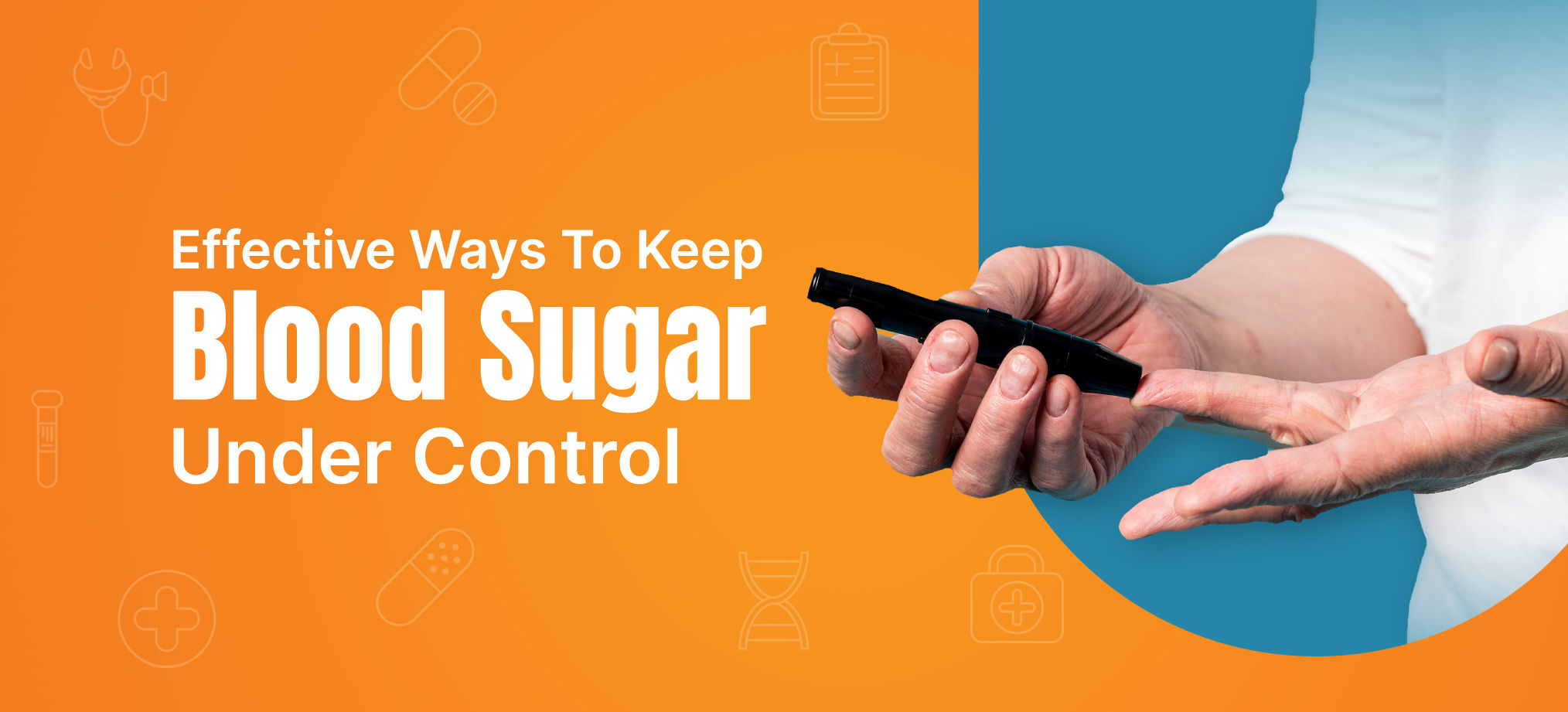Diabetes Management
Celebrate Diwali While Keeping Your Blood Sugar In Control!
4 min read
By Apollo 24/7, Published on - 14 November 2020, Updated on - 11 December 2023
Share this article
0
0 like

Keep portion sizes in check - Though tempting, people with diabetes should limit the portion size of sweets and savouries, and consider eating on smaller plates. This will not cause a significant spike in blood glucose after a little indulgence.
Opt for natural sweeteners – Prepare homemade sweets with natural sweeteners like dates, raisins, figs and other dried/fresh fruits. There are also options to shop for sugar-free sweets, which are essentially made with sugar substitutes.
Combine sweets with other healthy foods – Sweets tend to be refined and sugary, with a high glycemic index. Combining sweets with high-fibre healthy food will lower the aggregate glycemic index, preventing high spikes in blood sugar.
Look for healthy fats – Most sweets contain saturated fats which are unhealthy. Cook or buy sweets with healthy fats like yoghurt, nuts, and unsaturated oils. etc, as they slow down the digestive process and prevent a quick rise in blood sugar.
Keep away from excessive alcohol – Alcohol, in small quantities, can be a part of the celebrations. Diabetic patients should keep in mind that alcohol interferes with sugar levels and excessive consumption reduces the effectiveness of the hormone insulin that regulates blood sugar.
Keep away from stress - Household chores can make the celebrations stressful, but it is important to relax and enjoy the festival. Diabetic patients may consider yoga for relaxation, and it is also a step towards healthy living.
Avoid eating food at irregular timings - During festivals, people tend to skip having food on time because of festive preparations. In diabetic patients, fasting for long durations can cause a drop in blood sugar (hypoglycemia) and fatigue.
Avoid feasting - Feasting and binge eating during celebrations can raise blood sugar levels rapidly. If you cannot avoid such an event, try to balance it out by healthy snacking in advance, which will reduce the temptation to binge eat.
Stay hydrated - For diabetic patients, inadequate amounts of fluid in the body during fasting can lead to dehydration. They should always consume enough fluids to keep themselves hydrated.
Monitor blood sugar regularly - The festive season may involve eating different foods that may affect blood sugar levels. Hence, it is necessary to measure blood sugar more frequently than on other days during this period. And don’t forget to keep a note of these.
Take medication or insulin injections on time – During festivities, it is not uncommon to forget a medication here or an insulin dose there. One should keep reminders on their mobile phone or health apps so they never delay or skip these.
Focus on being physically active - During the festive season, exercise routine usually takes a backseat. Diabetic patients should balance out the indulgence by being more physically active during this period – try sneaking in a swim, yoga or even a brisk walk before or after you’ve eaten.
Avoid fried snacks - Fried snacks are high in saturated fats, and combining them with Diwali sweets would be akin to a double whammy. Try baked instead of fried foods, which come close in taste and texture.
Choose the right carbs – People with diabetes should avoid the intake of refined carbohydrates and look out for healthy alternatives like fibre-rich whole foods and other low-glycemic index foods.
Follow mindful eating - Enjoy a dessert with the company of your family and friends by mindfully eating each bite rather than eating large quantities, which will quickly add up the calories.
Diwali is a joyous occasion and largely incomplete without great food and sweets. It should be no different for people with diabetes, especially if they can make small tweaks to their diet, and find a few smart and healthier alternatives. All the tips discussed above will go a long way in regulating diabetes better, without having to forego any of the festive fun.
You can also try the Apollo 24|7 Diabetes Self-Management Tool to log your sugar values, track patterns, know all about food nutrition and more.
Diabetes Management
Consult Top Diabetologists
View AllLeave Comment
Recommended for you
.jpg?tr=q-80)
Diabetes Management
How to Create a Diabetes-Friendly Pasta Dish?
Creating a diabetes-friendly pasta dish is easier than you think! Choose whole grain pasta, lean proteins like chicken or paneer, and add plenty of non-starchy veggies. The key lies in portion control and increasing fibre content for better blood sugar regulation. For expert guidance on managing diabetes through lifestyle changes, consider enrolling in the Apollo Super 6 programme.
.jpg?tr=q-80)
Diabetes Management
Eggs: A Nutritional Powerhouse for Diabetes Management
Can eggs be beneficial for those managing diabetes? Absolutely! They are packed with high-quality protein, and essential nutrients, and are low in carbohydrates. However, the way you cook and serve them matters. Boiling, poaching, and pairing with vegetables can enhance their nutritional profile. Remember, eggs should be part of a varied and balanced diet for effective diabetes management. If you want to learn more about how diet and lifestyle

Diabetes Management
9 Diet Tips for New Mothers with Diabetes: Foods to Avoid
New mothers with diabetes must avoid certain foods for blood sugar control and postpartum health. Key tips include avoiding sugary snacks, desserts, and beverages, opting for low-sugar cereals, being wary of hidden sugars, choosing whole grains, limiting fatty and fried foods, opting for lean protein, moderating caffeine, and watching salt intake. Consulting healthcare providers and dietitians for personalized meal plans is essential for a smoother postpartum experience.
Subscribe
Sign up for our free Health Library Daily Newsletter
Get doctor-approved health tips, news, and more.
Visual Stories

8 Fruits That are Incredibly Healthy for Diabetes
Tap to continue exploring
Recommended for you
.jpg?tr=q-80)
Diabetes Management
How to Create a Diabetes-Friendly Pasta Dish?
Creating a diabetes-friendly pasta dish is easier than you think! Choose whole grain pasta, lean proteins like chicken or paneer, and add plenty of non-starchy veggies. The key lies in portion control and increasing fibre content for better blood sugar regulation. For expert guidance on managing diabetes through lifestyle changes, consider enrolling in the Apollo Super 6 programme.
.jpg?tr=q-80)
Diabetes Management
Eggs: A Nutritional Powerhouse for Diabetes Management
Can eggs be beneficial for those managing diabetes? Absolutely! They are packed with high-quality protein, and essential nutrients, and are low in carbohydrates. However, the way you cook and serve them matters. Boiling, poaching, and pairing with vegetables can enhance their nutritional profile. Remember, eggs should be part of a varied and balanced diet for effective diabetes management. If you want to learn more about how diet and lifestyle

Diabetes Management
9 Diet Tips for New Mothers with Diabetes: Foods to Avoid
New mothers with diabetes must avoid certain foods for blood sugar control and postpartum health. Key tips include avoiding sugary snacks, desserts, and beverages, opting for low-sugar cereals, being wary of hidden sugars, choosing whole grains, limiting fatty and fried foods, opting for lean protein, moderating caffeine, and watching salt intake. Consulting healthcare providers and dietitians for personalized meal plans is essential for a smoother postpartum experience.


